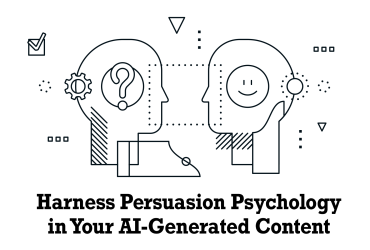Meta descriptions are short summaries that appear below the title of your page in search results. They’re like sneak peeks into your content. While they don’t directly boost your rank in search engines, they do play a part in drawing people in. When someone finds your meta description interesting, they’re more likely to click on your link.
How Meta Descriptions Impact Click-Through Rates
A compelling meta description can make a big difference in how many people decide to click on your page. Think of it as your webpage’s elevator pitch to potential visitors. If it aligns with what they’re looking for, they’re more likely to visit your site.
Basics of Meta Descriptions
A meta description briefly explains what’s on a webpage, written in HTML. It’s important because it can sway someone’s decision to click on your website from a search results list.
To write a good meta description, keep it short and sweet, ensure it’s related to your page, and add a call-to-action. It’s also a chance to show off your brand’s personality. Meta descriptions themselves don’t move you up in search rankings. However, if your meta description gets more people to click on your link, search engines take notice. They might see your page as more relevant and bump it up in the rankings.
When you’re writing a meta description, use keywords that people might search for, be clear about what your page offers, and encourage people to click. Keep your description under 160 characters to make sure it doesn’t get cut off in search results.
Understanding Meta Description Generators
Meta description generators are handy tools that help you automatically craft summaries for web pages. They look at your content and create short, snappy descriptions that fit right into the HTML of your page.
These generators use smart algorithms to pick out the main ideas from your content and put together descriptions that catch the reader’s attention and give them a clear idea of what the page is about. Some even use advanced AI to better grasp the content’s context and subtle meanings.
The Technology Behind Automated Meta Description Creation
At the heart of these generators is a mix of natural language processing and machine learning. This tech mix helps them write text that sounds pretty human, making it more likely to click with those who read it.
Benefits of Using Meta Description Generators
A meta description generator can be a real time-saver. It does the quick work of creating descriptions, freeing up SEO experts and content creators to tackle other parts of their strategy. These generators are great for keeping the tone and quality of your meta descriptions consistent. This is super important for your brand’s message and the experience people have on your site.
When picking a generator, you’ll want to look out for things like how much you can customize it if it can link up with your content management system, and if it can handle making lots of descriptions at once. It’s smart to check out different tools to find the best fit for you. Think about how easy they are to use, how advanced the tech is, and if they have extra SEO features that could help you.
Free vs. Paid Meta Description Tools
Free tools usually cover the basics, but if you’re willing to pay, you can get your hands on some pretty advanced features and better support. Think about what you can afford and what you really need for your SEO work.
Consider how much time you could save and how much better your SEO might be with a paid tool. For a lot of folks, this investment is worth it because it can lead to higher rankings and more people visiting your site, which can make up for the cost. It’s also smart to keep an eye on what industry experts are saying. They often know which tools deliver the best results. If a meta description generator is getting a lot of praise from SEO professionals, it’s probably worth checking out.
Using Meta Description Generators Effectively
When you write meta descriptions, aim for clear and engaging summaries of your page content. You want to encourage people to click through to your site. Write in an active voice and choose your words to persuade and interest potential visitors. Remember, brevity is key. Make sure to weave in relevant keywords that match what people are searching for. But be careful not to cram too many in. Your meta description should read smoothly and give readers a clear idea of what to expect on the page.
Your website’s pages each have their own purpose and audience. Make sure your meta descriptions reflect this. Tailor each one to match the specific content and user intent of the individual page.
Advanced Tips and Techniques
People browsing on their phones behave differently than those on desktops. They want quick, easy-to-read information. Meta description generators can be a big help here. They can create short, sharp descriptions that grab the attention of someone scrolling through results on their phone.
Google now prioritizes mobile versions of websites when indexing. This means your meta descriptions have to look good on smaller screens. A generator that’s designed with mobile in mind can ensure your descriptions are effective, no matter the device.
Local SEO and Meta Descriptions
Meta descriptions are a powerful tool for local SEO. When you include keywords that are specific to your location, you can better reach people who are searching for businesses or services in your area. A tool that writes meta descriptions can make this task easier, helping to draw in a local audience and increase your online visibility.
The Role of AI in Meta Description Generation
AI tools are changing the game for creating meta tags. They use smart algorithms to write descriptions that are not only relevant but also engaging. These tools learn from data to create meta descriptions that can boost your site’s SEO. AI is becoming more important in SEO and content creation. As the technology gets better, we can expect AI to offer even more help, like creating meta descriptions that match what users are looking for. This could make SEO strategies even more effective.
The Accuracy and Reliability of AI Tools
AI tools are fast and convenient, but it’s important to make sure they’re also accurate. You should always check AI-generated descriptions to make sure they really represent your page’s content and that they follow SEO best practices. Even with all the progress in AI, it’s still important to have a human touch. When you combine the efficiency of AI with the insight of a human, you can create meta descriptions that are not only good for SEO but also truly helpful for readers.
Implementing Meta Descriptions in Your SEO Strategy
Small businesses can use meta descriptions to stand out online. A well-written meta description can catch the attention of potential customers and bring more visitors to your website. Some small businesses really get it right with their meta descriptions, which are part of a bigger plan to show up in search results. Looking at their tactics can teach you how to write meta descriptions that connect with the people you want to reach.
In E-commerce and Online Stores
Online shops can draw in shoppers with meta descriptions that showcase what’s great about their products. Using a tool that writes meta descriptions can help you come up with unique and convincing text for each item, which can lead to more clicks and sales. Meta descriptions are important in online shopping because they can convince someone to look at your product. If you get your meta tags right, your items could show up higher in search results and be seen by more people.
Content Creators and Bloggers
For those who write blogs or create content, meta descriptions are a sneak peek at what’s in their article. They can use a tool that helps write catchy and fitting meta descriptions for each piece. Good meta tags can make someone curious and want to read more. Content creators can get more people to read their work by choosing the right keywords and writing in an engaging way.
Measuring the Impact of Meta Descriptions
You can check how well your meta descriptions are doing by using SEO tools that look at things like how often people click on your links and where you appear in search results. This information can guide you to make your meta tags even better.
When you look at the numbers, you can figure out the best ways to improve your meta descriptions and other parts of your SEO. This makes sure you’re doing what works best for the people you want to visit your site and for the search engines.
A/B Testing with Meta Descriptions
A/B testing lets you try out different meta descriptions to find out which one works best. This approach is key to making sure your SEO efforts keep getting better over time. Looking at past successes in A/B testing can teach you a lot. By examining these examples, you can pick up tips on how to test and tweak your meta descriptions for top-notch SEO performance.
Promoting Authenticity in Automated SEO Practices
Authenticity is a must in SEO, even when you’re using tools to automate meta descriptions. It’s wise to go over and tweak what the AI comes up with so it truly reflects your brand’s style. Real, honest meta descriptions draw people in because they know what to expect from your page.
Maintaining Brand Voice in Meta Descriptions
Your brand’s message should be clear and consistent, even in the brief lines of meta descriptions. While AI can speed up writing these descriptions, it’s your job to make sure they sound like your brand. This attention to detail offers a smooth transition for users from the search results to your site. It’s important to mix SEO with a strong brand presence for a solid online marketing strategy.
It’s essential to be seen online, but not by losing what makes your brand special. Your meta descriptions should not only be search-engine friendly but also showcase what sets your brand apart. Getting this right means you can connect better with your audience and stand out in the busy online world.
The Future of Meta Descriptions in SEO
SEO is always on the move, with strategies for meta descriptions evolving right along with it. Search engines are becoming better at understanding what users want, so meta descriptions need to be more than just keyword-filled. They should offer a snapshot of what’s on the page that matches what people are looking for.
As search engines grow smarter, the way we write meta descriptions will likely focus more on providing quality and relevance. We can expect search engines to get even better at recognizing and valuing meta descriptions that really meet the searcher’s needs.
To keep up with the competition, it’s crucial to stay up-to-date with SEO trends, especially when it comes to meta descriptions. Knowing the best practices and being ready to adjust to new rules from search engines and changes in what users want is key.
Search engine algorithms are always being updated to make searching online a better experience. To keep your meta descriptions working well, you need to keep an eye on these updates and understand how they might change your SEO approach. Updating your meta descriptions regularly can help keep them relevant and effective.
It’s a good idea to check your meta descriptions now and then to make sure they still match up with your page content and are in line with the latest SEO advice. Keeping them up-to-date is important for making sure they continue to do well in search results and draw the right people to your site.
Analyzing What Makes a Meta Description Successful
Looking at meta descriptions that have done well, we can see important features like targeted keywords, something unique about the offer, and matching what users are searching for. These clues can help us create meta descriptions that grab attention and get clicks.
Meta description generators are handy tools for anyone looking to improve their website’s SEO. They simplify the process of creating meta tags, saving you time and making sure each webpage is equipped with a unique and well-crafted meta description.
You can speed up this part of your SEO work by using automated tools to generate meta descriptions. This efficiency allows you to put more energy into other areas of SEO and content strategy, keeping your website’s meta tags fresh and relevant.
When introducing SEO tools like meta description generators to your team, it’s crucial to outline clear usage guidelines and offer training on best practices. Promoting teamwork and the exchange of ideas can also ensure everyone is up to speed on crafting optimized meta descriptions.
Final Thoughts
Meta descriptions are super important in today’s SEO because they can sway someone to click on your link instead of another. A meta description that’s written well can be what makes someone decide to check out your site. For the best SEO results, it’s a good move to start using meta description tools. These tools can help make sure every page on your website has a meta tag that’s both engaging and optimized, which can lead to better search rankings and more clicks from potential visitors.





